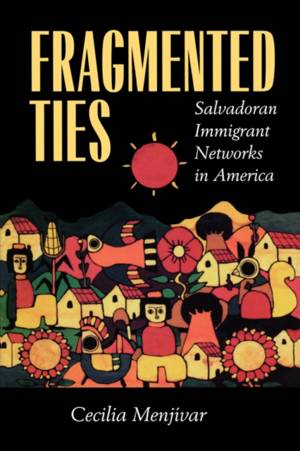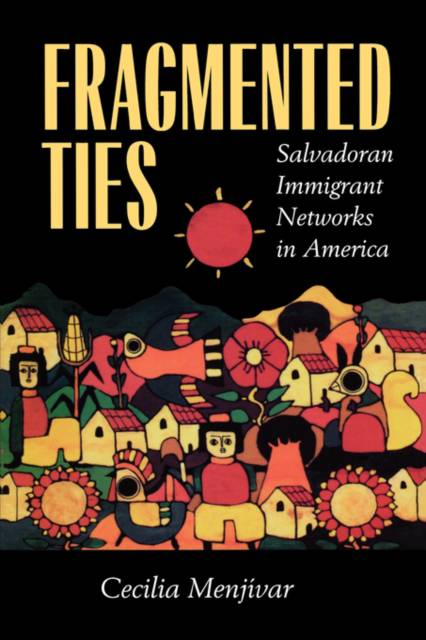
- Afhalen na 1 uur in een winkel met voorraad
- Gratis thuislevering in België vanaf € 30
- Ruim aanbod met 7 miljoen producten
- Afhalen na 1 uur in een winkel met voorraad
- Gratis thuislevering in België vanaf € 30
- Ruim aanbod met 7 miljoen producten
Zoeken
€ 57,95
+ 115 punten
Omschrijving
In one of the most comprehensive treatments of Salvadoran immigration to date, Cecilia Menjívar gives a vivid and detailed account of the inner workings of the networks by which immigrants leave their homes in Central America to start new lives in the Mission District of San Francisco. Menjívar traces crucial aspects of the immigrant experience, from reasons for leaving El Salvador, to the long and perilous journey through Mexico, to the difficulty of finding work, housing, and daily necessities in San Francisco. Fragmented Ties argues that hostile immigration policies, shrinking economic opportunities, and a resource-poor community make assistance conditional and uneven, deflating expectations both on the part of the new immigrants and the relatives who preceded them. In contrast to most studies of immigrant life that identify networks as viable sources of assistance, this one focuses on a case in which poverty makes it difficult for immigrants to accumulate enough resources to help each other.
Menjívar also examines how class, gender, and age affect immigrants' access to social networks and scarce community resources. The immigrants' voices are stirring and distinctive: they describe the dangers they face both during the journey and once they arrive, and bring to life the disappointments and joys that they experience in their daily struggle to survive in their adopted community.
Menjívar also examines how class, gender, and age affect immigrants' access to social networks and scarce community resources. The immigrants' voices are stirring and distinctive: they describe the dangers they face both during the journey and once they arrive, and bring to life the disappointments and joys that they experience in their daily struggle to survive in their adopted community.
Specificaties
Betrokkenen
- Auteur(s):
- Uitgeverij:
Inhoud
- Aantal bladzijden:
- 319
- Taal:
- Engels
Eigenschappen
- Productcode (EAN):
- 9780520222113
- Verschijningsdatum:
- 21/07/2000
- Uitvoering:
- Paperback
- Formaat:
- Trade paperback (VS)
- Afmetingen:
- 152 mm x 228 mm
- Gewicht:
- 430 g

Alleen bij Standaard Boekhandel
+ 115 punten op je klantenkaart van Standaard Boekhandel
Beoordelingen
We publiceren alleen reviews die voldoen aan de voorwaarden voor reviews. Bekijk onze voorwaarden voor reviews.











